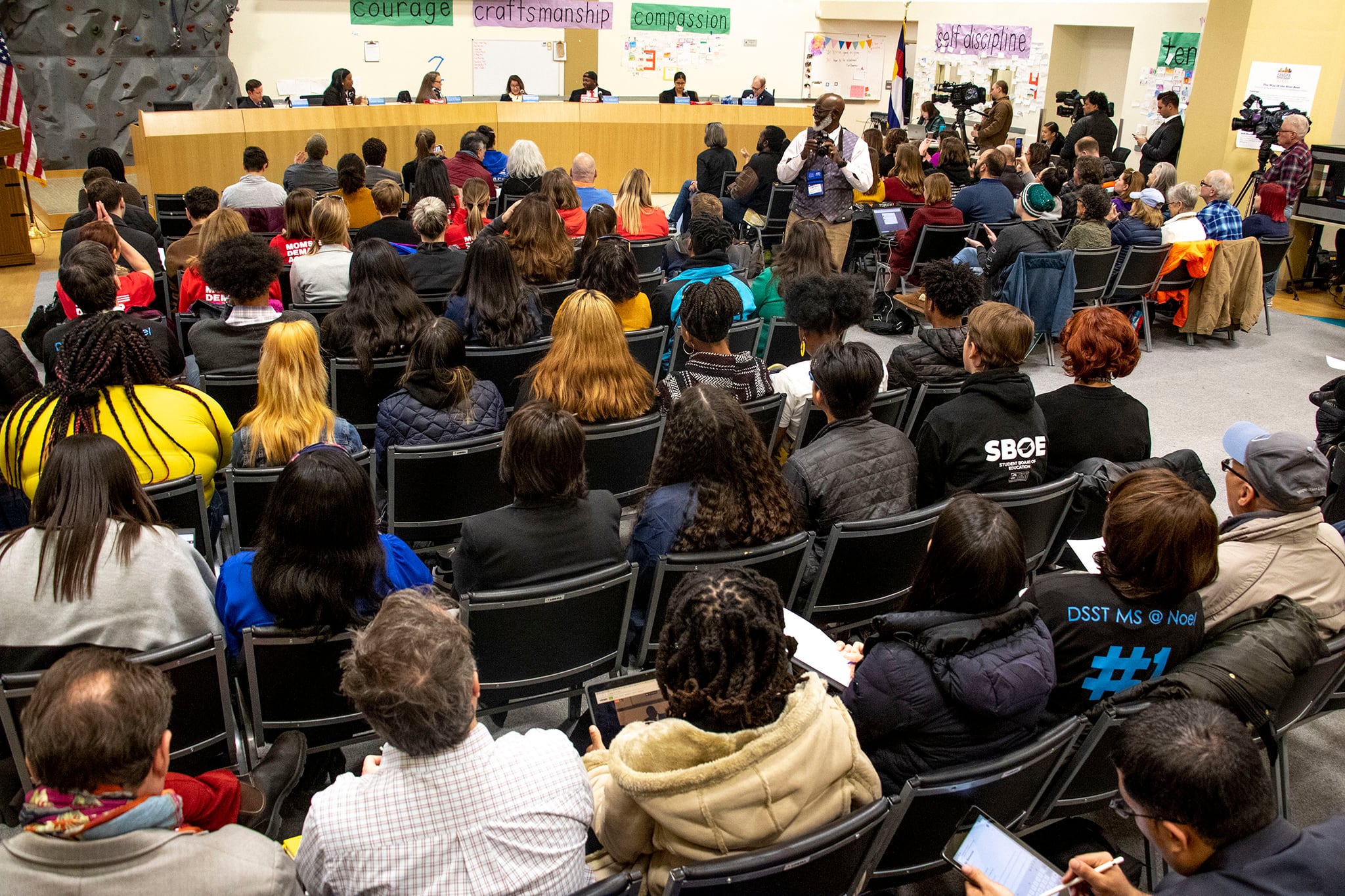The Denver school board voted 5-2 Thursday to pay board members, as allowed under a new state law passed six months ago.
Denver Public Schools will pay board members up to $150 per day for as many as five days per month — or $750 per month each — for attending regular or special school board meetings, committee meetings, training sessions, and “other activities approved in the future.” Board members are currently volunteers. They will have to request the pay, and board members can choose to forgo it.
Denver’s policy is less than state law allows. Board members can legally get paid $150 per day up to five days per week, a total of about $3,000 per month each. In a tweet, Denver board member Tay Anderson called Denver’s proposal a compromise.
“We couldn’t get folks to agree on a higher number or more than five days,” he wrote.
Board members Angela Cobián and Barbara O’Brien voted no. Both said that although the dollar amount is relatively small, they couldn’t justify the expense given that the district has other pressing needs, including increasing support for student mental health.
“While passing this policy seems like it’s a grain of sand in comparison to the billion-dollar budget we have, it is still the case that if you vote yes for this you are knowingly increasing the structural debt the district is taking on,” said Cobián, the board’s outgoing treasurer.
Jim Carpenter, the district’s deputy superintendent of operations, said the proposal would cost about $50,000 next year and up to $90,000 in subsequent years. State law prohibits board members from voting to pay themselves during their current term, so only newly elected or re-elected members will be eligible when the policy takes effect in January.
Anderson was the most emphatically supportive. He said that for the first time in more than 160 years, since Denver Public Schools was founded, the board has the opportunity to acknowledge that people deserve to be paid for their labor. This policy will make it easier for board members to balance work, child care, and other responsibilities with attending several board meetings each month, he and others said.
“This is a tough job,” said board member Scott Baldermann. “This is very time consuming. And we need to provide more opportunities for people to be on the school board.”
Three new board members — Scott Esserman, Michelle Quattlebaum, and Xóchitl “Sochi” Gaytán — are set to be sworn in later this month. Sitting board President Carrie Olson will be sworn in for a second term. She previously said she would abstain from the vote on board member pay but ended up voting yes Thursday.
The school board in tiny Sheridan, just south of Denver, appears to have been the first in Colorado to vote to allow its members to get paid under the new law. In contrast to Denver’s plan, Sheridan board members will not get paid for regular meetings but could get paid for attending a conference that requires them to be out of town and miss work.
Other school boards in Colorado, including in Aurora and Commerce City’s Adams 14 district, have discussed paying board members but have not voted on proposals.







